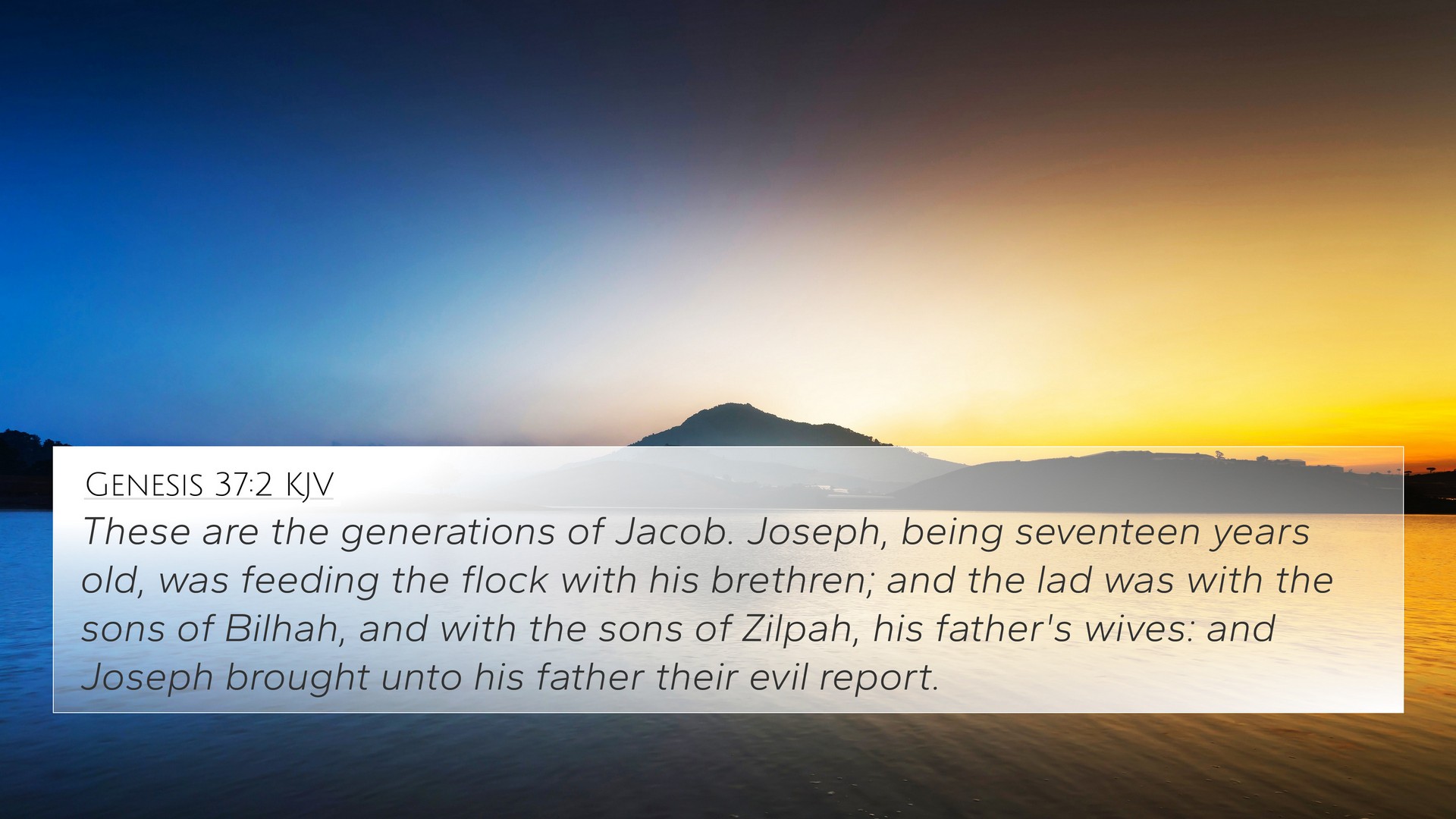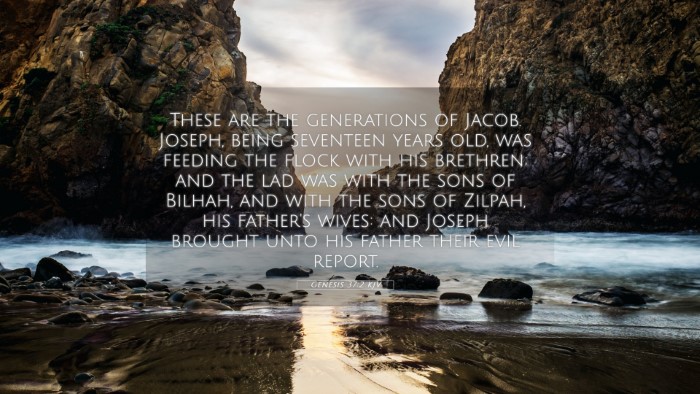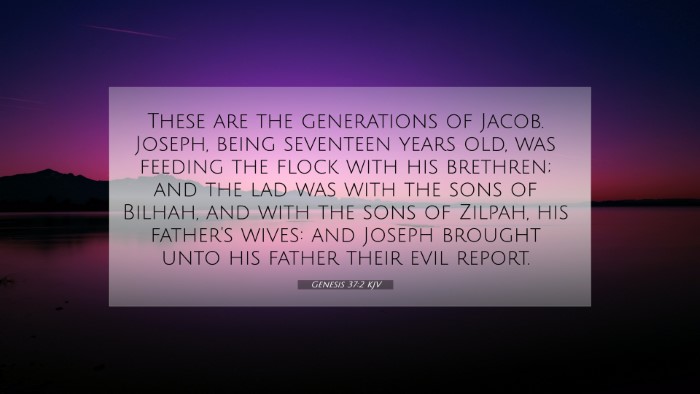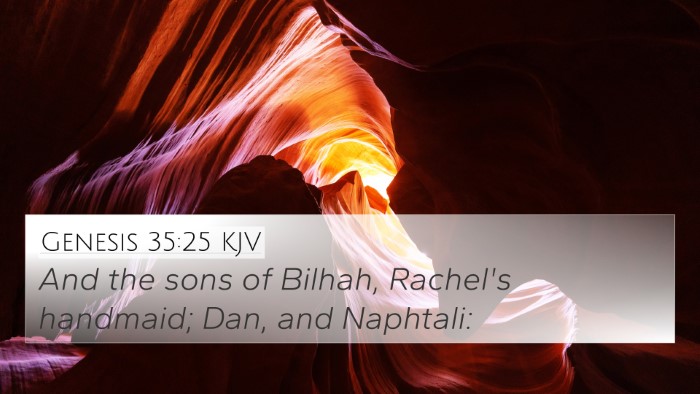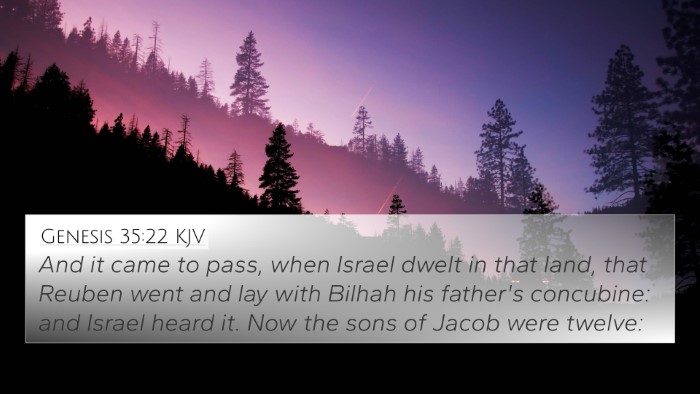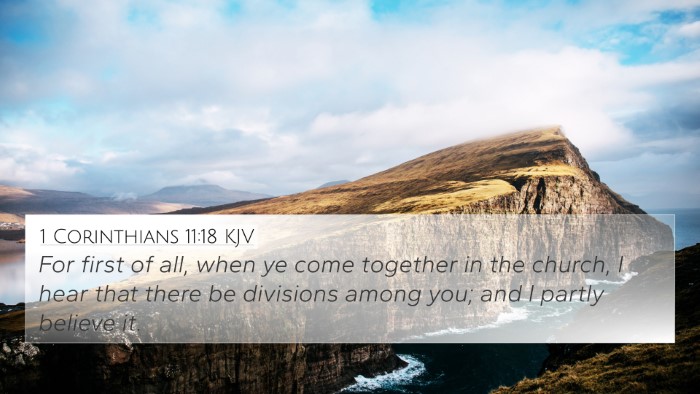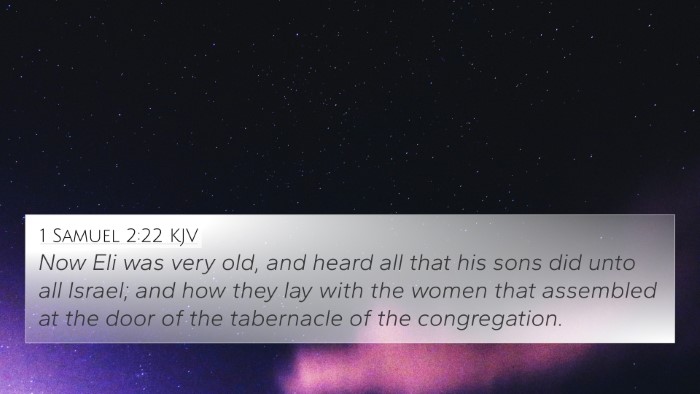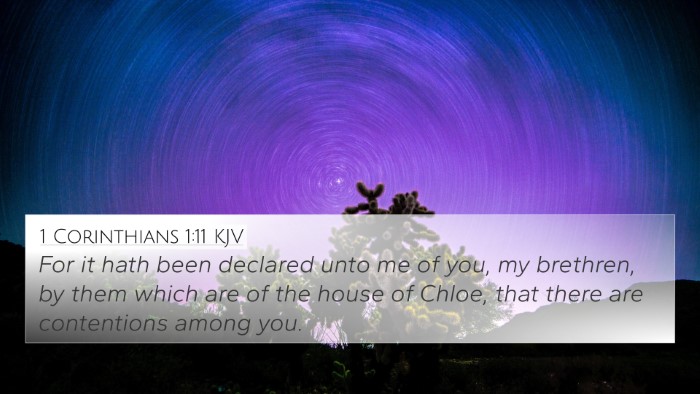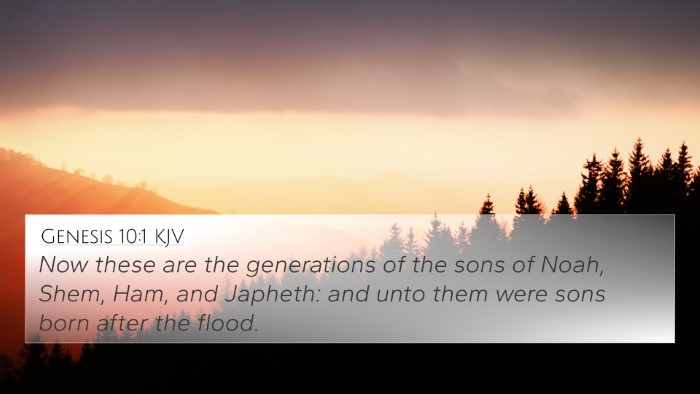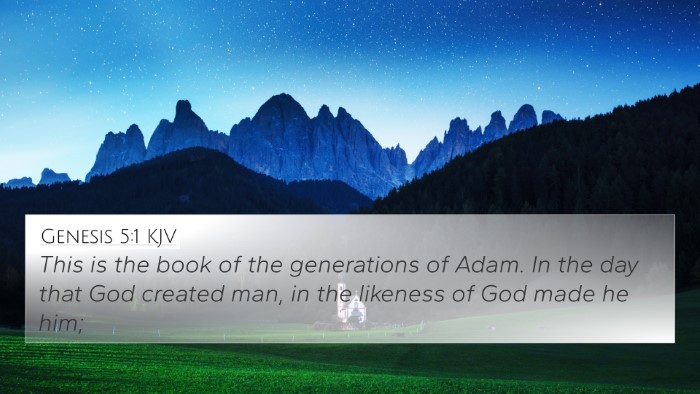Meaning and Interpretation of Genesis 37:2
Genesis 37:2 reads: "These are the generations of Jacob. Joseph, being seventeen years old, was feeding the flock with his brethren; and the lad was with the sons of Bilhah, and with the sons of Zilpah, his father's wives: and Joseph brought unto his father their evil report." This verse serves as a pivotal moment in the narrative of Joseph, foreshadowing critical themes such as family dynamics, moral integrity, and the unfolding of divine providence.
Contextual Analysis
The context of Genesis 37:2 places us in a significant transitional phase in the Book of Genesis, where attention shifts from Jacob to Joseph. The verse sets the stage for Joseph's complex relationship with his brothers and underscores his role as a young shepherd, indicative of his responsibilities within the family.
Key Themes
- Family Relations: The mention of Joseph's interaction with the sons of Bilhah and Zilpah highlights the tensions and complexities within Jacob's household. His role as a 'snitch' by bringing an evil report to his father foreshadows the discontent of his brothers.
- Coming-of-Age: At seventeen, Joseph is at the threshold of adulthood, navigating his identity within a large family structure. This age signifies both vulnerability and emerging leadership qualities.
- Moral Integrity: Joseph's action of reporting his brothers' misdeeds can be interpreted as a moral stance, reflecting values of honesty and responsibility, setting him apart as a character destined for significant leadership.
- Divine Providence: Even in seemingly mundane tasks like shepherding, God's plan for Joseph begins to unfold, hinting at future events where he will rise from betrayal to prominence in Egypt.
Public Domain Commentary Insights
Matthew Henry emphasizes Joseph's youth and innocence, suggesting that his act of reporting was not merely malicious but a reflection of his earnestness and commitment to truth. He notes that this foreshadows the siblings' later envy and treachery.
Albert Barnes points out the significance of both Bilhah and Zilpah, Jacob’s concubines, which adds layers to the narrative by highlighting the complexity of inheritance in the family. This background informs the reader of the social and familial tensions that culminate in the events of Joseph’s life.
Adam Clarke notes the importance of this foundational verse as it introduces Joseph not just as a familial character but as one who will play a vital role in salvation history through his future trials and triumphs.
Bible Verse Cross-References
Genesis 37:2 connects with several other scripture references that illuminate its meaning:
- Genesis 37:3-4: Introduces the favoritism from Jacob towards Joseph, leading to the brothers' resentment.
- Genesis 37:12-14: Details Joseph’s journey to find his brothers, showcasing his father’s trust.
- 1 Samuel 16:7: Highlights God’s choice based on the heart, relevant to Joseph’s character development.
- Psalms 105:17-19: Relates God's overarching plan for Joseph through trials.
- Hebrews 11:22: References Joseph's faith regarding his bones, showing his perspective on destiny and God's promises.
- Matthew 5:11-12: Jesus' teachings on persecution resonate with Joseph’s experiences.
- Acts 7:9-10: A recount of Joseph's story from Stephen, affirming his role in Israel's history.
Thematic Connections Between Bible Verses
Understanding the connections between Genesis 37:2 and other passages enriches one’s study and appreciation of Biblical themes:
- Linking with Leadership: Joseph’s early years highlight similarities in leadership themes found in David’s shepherding (1 Samuel 16:11).
- Family Strife: The themes of jealousy and favoritism seen in Genesis 37 reflect later familial themes in the New Testament concerning unity and love (Ephesians 4:3).
- Moral Responsibility: The moral implications of Joseph's actions align with New Testament teachings on integrity (Titus 2:7-8).
Conclusion: An Interwoven Tapestry of Teachings
Genesis 37:2 serves as a cornerstone that not only informs the reader about Joseph’s introduction but also sets up a web of relational dynamics, moral lessons, and principles of faith that resonate throughout the scriptural narrative. Engaging with cross-references and thematic analysis provides a deeper understanding of how this verse interacts with broader Biblical truths, enriching one's study and application of Scripture.
